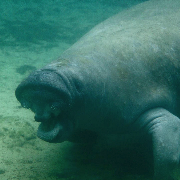|
Is anyone out there in GIS? I'm trying to learn as much as I can but don't have much of place to start. I'm stranded for the second major time in careers and probably going to have to try something new (already have BA and MA in history). GIS was suggested in a thread I posted about environmental science-type degrees and jobs, and it at least has job prospects (environmental seemed more up in the air). Aside from my degrees I've been all over (accounting/data entry, defense contracting/radiation safety, and last was oilfield/radiation safety). Only thing is I'm basically tethered to S. Texas. Job search isn't going well and I'm near taking my old job back but I'll be out of town for extended periods. It will hopefully allow me to pursue a new degree though. Just can't pick something that bombs. Any thoughts are much appreciated.
|
|
|
|

|
| # ? Apr 18, 2024 23:43 |
|
I have some training in GIS from my BSC in geography. I'm looking for a GIS / remote sensing job, too. There are a ton of job postings, as you may have noticed. But the qualifications required are usually a GIS/CPSC degree for the techier jobs involving database management and servers and so on, or some GIS experience and another field of expertise. EG could be GIS and oil and gas industry, in your case, or GIS and forestry (or O&G again) up here where I live. How GIS combines with history, I donno. It does combine with archaeology, so if that's your area of history, you are in luck. I guess as for history, it's human geography - so there you go. (I prefer biophysical stuff, myself.) As for learning about GIS on your own, head straight to the ESRI site and start doing the free courses that allow you to use ARCGIS online. Then head to the opensource software and try other projects there. (If you were recently a student, you might be able to download ARCGIS from your university, as I did recently, even though I graduated over a year ago.) I was looking at doing a certificate, but right now I'm thinking the self-teaching is going to be adequate. Here are some other free GIS resources: https://www.e-education.psu.edu/maps/syllabus https://www.gislounge.com/how-to-go-from-gis-novice-to-pro-without-spending-a-dime/ https://www.gislounge.com/tutorials-in-gis/ Scroll down to the GEOG courses - PSU has great free online materials. http://open.ems.psu.edu/courseware And google-fu is a key GIS skill, also, There's so much more out there than what I've listed. Good luck.
|
|
|
|
BaliDog posted:And google-fu is a key GIS skill, also, There's so much more out there than what I've listed. Good luck. Sorry for the non-content post, but I actually thought this was a thread about careers in Google Image Search.
|
|
|
|
Nail Rat posted:I actually thought this was a thread about careers in Google Image Search. Gee, I hope not. I thought it was about geographic information systems.
|
|
|
|
BaliDog posted:Gee, I hope not. I thought it was about geographic information systems. Well obviously now I just meant from the thread title.
|
|
|
|
Yeah I should've clarified, although I don't think the full thing would fit for the thread title. Geographic Info. Systems. I don't have any illusion that it will match with what I've done thus far, just trying to find something marketable that I can do well and not hate. I've basically accepted that all my past experience will be moot, unfortunately.
|
|
|
|
I am unsure about south Texas, but north Texas actually has a surprising amount of GIS work going due to extreme climate change, rapid tree loss, sprawl which feeds back into urban heat island, and fast growth. Most GIS positions I see start pretty low pay, but also there seems to be a fair amount of them relative to other fields which is good. But unless you climb up the management ranks you don't really see a lot of income. I will say there are worse ways to make a living than making maps, it can be pretty relaxing and stress free. I don't work as a GIS tech but I learned the software in school and apply it for my current position.
|
|
|
|
Nail Rat posted:Well obviously now I just meant from the thread title. Agreed. OP, if you can think of a way GIS relates to your interests in history - applicable to human geography of the present day, it could be a good combo. Like if you are interested in urban planning, for example. Although I'd think library science would be more of a natural. You could check out the ESRI story map contest. Being a historian, you might know of a story worth telling, and it's an free and easy way to get introduced to ARCGIS. You don't have to go into hardcore GIS like I want to. You can use it as part of story-telling, which to me would seem a natural fit with your background. I presume you can write and show and tell a story: http://www.esri.com/landing-pages/s...&aducp=branding As a noob, you could learn something just from reading about the contest, really.
|
|
|
|
Thanks for the resources guys (and to the mods for updating the thread title so it's actually useful). Going to do some digging into them when I'm on an actual computer.
|
|
|
|
I am also debating on GIS or wetlands with my geog degree. I want to be outside so wetlands sounds fun, but i also love staring at maps all day. Life decisions are hard.
|
|
|
|
Uziduke posted:I am also debating on GIS or wetlands with my geog degree. I want to be outside so wetlands sounds fun, but i also love staring at maps all day. Life decisions are hard. What kind of wetlands work are you thinking of? I am interested in those, too, and most of the jobs seem to be civil engineering, apart from low-paid monitoring summer jobs, usually done by interns or here in Canada, students under 30. Frankly, they are often volunteer positions, also. Maybe you have a strong biology background, though, unlike me, and you can go to the ecosystem/vegetation side. I'm looking to get more field experience with vegetation so that I can get into this kind of work and ultimately get a P.Ag qualification. Again, the agrologists' professional org is provincial, so it's unlikely you are in the same jurisdiction as I am. What did you do in your geog degree? Mine was BSC with a lot of hydrology and geomorph, but to do "hydrology" work here you pretty much need master's level earth science - so all the structural and groundwater stuff I didn't take. I did surface stuff, which as I said gets taken over mostly by civil engineering, here. Looking to find a little niche for myself and have looked at an awful lot of job postings over the past year.
|
|
|
|
I'm a Geography major and GIS minor. It's useful but it's also loving infuriating to use this software.
|
|
|
|
birds posted:I'm a Geography major and GIS minor. It's useful but it's also loving infuriating to use this software. Well that's not encouraging  ARCGIS or what? ARCGIS or what?
|
|
|
|
Yeah, ArcMap. But I think I'm just not good with it. Some guy who helps me with the labs that we're assigned is a loving wizard with it but he also has a programming background. Still, having experience with GIS looks really good to employers so I'm glad I did it. edit: Also here's a good resource for GIS employment opportunities. It's down right now, hopefully temporarily but it was working as of a couple weeks ago: http://gisjobsmap.com/ birds fucked around with this message at 17:25 on Apr 19, 2017 |
|
|
|
So I've completed my B.A. in Geography and minor in GIS. I even got a GIS certificate from my university. I'm looking for jobs but they many seem to require knowledge in ArcSDE, ArcGIS server and all that stuff outside of ArcMap. These were never covered in my Intro and Advanced GIS classes. How difficult is it to learn these programs? I'll have access to the full ArcGIS software package this summer but I'm mostly on my own as far as learning them.
|
|
|
|
birds posted:So I've completed my B.A. in Geography and minor in GIS. I even got a GIS certificate from my university. I'm looking for jobs but they many seem to require knowledge in ArcSDE, ArcGIS server and all that stuff outside of ArcMap. These were never covered in my Intro and Advanced GIS classes. How difficult is it to learn these programs? I'll have access to the full ArcGIS software package this summer but I'm mostly on my own as far as learning them. If you weren't good at ArcMap, these other things are definitely beyond you at the moment. They are for setting up a server and spatial database. It's really computer-geek stuff, and I don't know how you'd learn it on your own because no way you'd get access to the software. You could work on other database and server software, open source stuff, but you're not a computer geek, so it ain't gonna happen. Unless you hatch out of your egg and become one. I'm not being sarcastic, just colourful. It's not gonna happen to me either. I will use computers as a tool, but I can't fall in love with them and won't become a drone to their service just for the money. Considering you didn't google and find out what those programs are, etc, you are currently not practising the basic skill for using ArcMap and computers in general, ie JFGI.
|
|
|
|
I worked as a GIS and Data Analyst for 6 years in local government so I'll try to cover some of the general questions fielded so far. Feel free to directly ask me more specific questions. ArcGIS is the juggernaut in the industry and has like 90% of market share when it comes to desktop analysis, so definitely heed everyone's recommendations and do as much training as you can on it. If you land an entry level gig you'll probably be spending the first month or two just doing spatial data entry, digitizing features from either geo-referenced images or other documents. It's dull and boring work but it's how everyone who I've meet in this industry started. Eventually you'll work your way up to doing basic analysis and cartography which pays alright depending on location and employer. Now, what they don't teach you in undergrad is the fact that there's quite a bit of database design, configuration and programming involved in this line of work as you work your way up since you'll be expected to configure and setup the online map services and backend for them. Most places will give you training in that once you've seen you're not useless at your job and can be trusted, so don't stress about not having this experience for an entry level job even if they ask for it. There's also QGIS which is opensource and has been keeping a very solid release schedule in terms of features, I'd recommend downloading a copy and getting a feel for it if you're interested and don't have any experience outside of what you've done in university labs with ArcGIS. SQL and all of it's different forms (MS SQL, MySQL, PostgreSQL and Oracle) is the other main tool you'll end up using as well. In a proper enterprise environment they'll be using a SQL database since it offers better performance, management and security over having a bunch of shapefiles in a shared drive (just lol). MicroSoft SQL and Oracle are the two big players in this domain. If you have no knowledge of SQL I recommend heading over to w3schools SQL tutorial and running thru it. I learnt all I know on the job and only took me a few weeks to get the basics down just with the w3schools website, MicroSoft's own online documentation (MSDN library) and stackexchange. If you want to advance in this field past the basic "push button receive map" position it's something you'll need to know. It also annoys me that most undergrad and diploma in this field completely miss this component. But I guess database programming is seen as interesting/sexy as cartography and therefore not as marketable. Which is true, most people actually perked up when I use to tell them I make maps versus now when I tell them it's 50% database programming and 50% useless meetings. But I do also get paid more as a result. As long as you understand basics around spatial data and cartography you'll be fine in applying for entry positions. Every single GIS job description I've seen have like five times as many requirements as you'll end-up using because Bob once used a bit of VBA in Excel to do some basic data transformation so they'll put down "must experience with Excel VBA" even thought it's stuff anyone can google in 2 mins. Have a look at paid internships on indeed.com and you should be able to find something. Also, if you're young and thinking of doing an Australia/NZ Working Holiday you'll easily find short 6 week to 6 month contract work in this field over here. Thought I recommend getting 2-3 years experience beforehand to help build up your CV.
|
|
|
|
I just found this thread but wanted to offer some support. I've worked in GIS for about 10 years, starting as a cartographer/analyst role and moving up to designing and building large federal enterprise GIS solutions, mostly around spatial data management and integration. Happy to help if anyone has any questions! One pro tip: if you got data, get FME. The general desktop GIS software solutions like ArcGIS and QGIS are actually pretty weak when it comes to complex data stuff. FME lets you do amazing things with all kinds of datasets very quickly and easily. mega dy fucked around with this message at 15:58 on May 22, 2017 |
|
|
|
Uziduke posted:I am also debating on GIS or wetlands with my geog degree. I want to be outside so wetlands sounds fun, but i also love staring at maps all day. Life decisions are hard. You may want to look into environmental consulting. I've been in this field for two years and we do light GIS stuff but I also perform wetland delineations. Some companies focus more on some areas than others, but the right place can be a good multi-discipline environment (geologists, enviro scientists, engineers etc). Benefit of that path also Is it can set you up for your PG license.
|
|
|
|
dy. posted:I just found this thread but wanted to offer some support. I've worked in GIS for about 10 years, starting as a cartographer/analyst role and moving up to designing and building large federal enterprise GIS solutions, mostly around spatial data management and integration. So is what you do now a lot more code writing and the like? I still haven't decided if I should take the plunge on this.
|
|
|
|
REMEMBER SPONGE MONKEYS posted:So is what you do now a lot more code writing and the like? I still haven't decided if I should take the plunge on this. 1) Architecture - understanding how various components of an enterprise GIS fit together (GIS servers, databases/data sources, web services, applications) and how users interact with them 2) Data Analysis/Integration - taking a bunch of datasets and figuring out how to bounce them off of each other to answer complex questions It's a pretty good gig. If you don't want to be a developer, there's a lot of need for people who know their way around the systems and data in general. Data integration/analysis/management in particular is a huuugely growing field. mega dy fucked around with this message at 17:09 on May 25, 2017 |
|
|
|
I've been studying or working in GIS off and on since about 2004. I'll second the guy who says that your basic GIS career involves a lot of database work and a good amount of coding. I've decided that's not really my bag, and I doubt that it is for most of the people that get into it - when I first saw the option to major in "Geographic Information Systems" in my college course catalog, it was definitely the "Geographic" part that caught my eye, as a lifelong enthusiast of maps. Right now my GIS-related job is a contract position where I do research on the attributes of electric power-related infrastructure (plants, substations, transmission lines) and then QA GIS data of these features. Not real thrilling stuff, but as a contractor I do it remotely which is nice. I'm looking to move again soon, and it'd be nice to find a city where I could pick up some more GIS gigs. Particularly something with an environmental application and some field work would be interesting. Not sure if there's a "Silicon Valley" of GIS work - suggestions welcome. EDIT: JIZZ DENOUEMENT posted:I am unsure about south Texas, but north Texas actually has a surprising amount of GIS work going due to extreme climate change, rapid tree loss, sprawl which feeds back into urban heat island, and fast growth. Ramrod Hotshot fucked around with this message at 03:30 on May 28, 2017 |
|
|
|
Uziduke posted:I am also debating on GIS or wetlands with my geog degree. I want to be outside so wetlands sounds fun, but i also love staring at maps all day. Life decisions are hard. I would absolutely focus on wetlands and take some GIS classes on the side. GIS was never meant to be a field of study in and of itself - rather it's a tool for things like studying wetlands.
|
|
|
|
Ramrod Hotshot posted:I would absolutely focus on wetlands and take some GIS classes on the side. GIS was never meant to be a field of study in and of itself - rather it's a tool for things like studying wetlands. If you are interested more in actual geography, you don't need to go crazy with GIS, but some intermediate skills with major desktop GIS software and a basic understanding of data formats will look great on a resume and will enable you to more easily navigate the data and technology around geography.
|
|
|
|
One thing I've noticed over the years is a big gap between GIS education and jobs. GIS classes tend to focus more on things like spatial analysis and statistics. and then you go job hunting and the top skills they're looking for in a GIS analyst are coding and database management. I suppose this is because, as GIS classes are usually taken at universities, they tend to be more focused on solving scientific problems, which you would use spatial analysis and statistics techniques for. Not sure I want to go down the academic route, but it would be cool to have a GIS job that is more focused on analysis. Do these even exist? Is there anyone here who has used spatial analysis or statistics techniques in their work?
|
|
|
|
Ramrod Hotshot posted:Not sure I want to go down the academic route, but it would be cool to have a GIS job that is more focused on analysis. Do these even exist? Is there anyone here who has used spatial analysis or statistics techniques in their work? It's not my area of training or expertise, but I've done a fair amount of spatial analysis work. Honestly even GIS-specific jobs are going to be mostly database and programming work, and to be competitive you're going to need at least some familiarity there. I'll use GIS software to produce neato maps and manage shape files, but I'm still running everything out of databases and doing most if not all analysis in spatial SQL. IME a good bet is to look at large insurance and real estate firms, they make a lot of use of GIS and are always hiring analysts.
|
|
|
|

|
| # ? Apr 18, 2024 23:43 |
|
I've been working in the GIS field for 4 years now, but I am from Canada (Ontario), so my perspective might be a little different. I got my BA in Anthropology, with a minor in Applied Geographic Techniques. Then, I went to college for a post graduate diploma in GIS, Applications Specialist. I would definitely recommend doing this if something similar is offered in the US. I learned a lot about database development, programming, and web GIS. I honestly don't think I would be as successful in my job without getting this diploma. It was much different than the GIS courses I had in university, way more hands on and practical. I had a one month placement with my local city government where I had to make some web maps for them. Once that finished up I applied all over Ontario and ended up getting a job at a conservation authority in the environment field. Honestly, I didn't want to do any environment work with GIS and would have rather went into public health GIS but beggars can't be choosers. The thing thats awesome about GIS is that if you have a great skill set you can switch fields a lot and also learn about a lot of different fields. I just accepted a new position at a mining research center, with minimal knowledge about geology but I am really excited to continue learning. This job is in an academic setting too, so I think I will be doing a lot more analysis BUT its not just limited to GIS work and will be more data sciencey stuff with R and machine learning as well as some 3D modelling in other programs. Even at my last job there was room for analysis work, especially with site selections for restoration projects as well as flood plain mapping and analysis. I got the job because I did a lot of work with programming and web GIS development at my last job. This included configuring some field data collection apps. If you want to be sticking with the environment field, I think thats an important skill set to have. I'd look into Survey123 and Collector as well as the Web App builder (all provided by ESRI). Even if you can't code you can do a lot with these programs. They have a free course on web apps that was really helpful. My web GIS knowledge has gotten me an interview with pretty much every place I apply to, and I've recieved offers for every position I've interviewed for. I've also interviewed people for GIS positions, there is a BIG gap between people who have taken a GIS course or two and those who have done a lot more diverse training. The people who go above and beyond map making and basic geoprocessing are the people who get the jobs. Especially if you can mention some automation skills, whether its with python or modelbuilder. I don't really think GIS is a field where you just finish up your schooling and thats it, I am constantly taking courses to update my skill set and branch off into new areas of data analysis. I have seen some GIS people who are content with map making and don't take any continuing education, even though the organizations I've worked for offer generous training and development budgets. I can't see them advancing into higher pay because they don't keep up with changing technology. Right now I am making fairly decent money, not as much as if I was a straight up developer but thats fine with me because I like the GIS work more than the developer work. Honestly, I could talk your head off about GIS so feel free to ask any questions if you want to know more. I know my perspective might be a little different because of the different countries, but I'd be happy to help.
|
|
|














